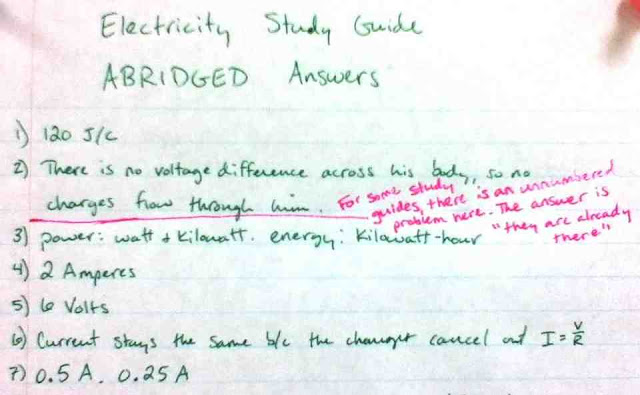Here is the review for the LAST TEST OF THE YEAR! Yaaaaaay!
The page numbers correspond to the brown version of the textbook.
p.535
7. How many joules per coulomb are given to charges that flow in a 120 volt circuit?
16. Why is it that a bird can perch without harm on a high voltage wire?
22. Where do the electrons that flow in a typical electric circuit come from?
24. Which of these is a unit of power and which is a unit of electrical potential energy: a watt, a kilowatt, or a kilowatt-hour?
2. Ten coulombs of charge pass a point in 5 seconds. What is the current at that point?
3. A battery does 18 joules of work on 3 coulombs of charge. What voltage does it supply?
5. What is the effect on current in a circuit if both the voltage and the resistance are doubled? If both are halved? Explain.
10. How many amperes flow in a 60-watt bulb rated for 120 volts when it is connected to a 120 volt circuit? How many amperes would flow if it were connected to 240 volts?
p.549
2. Why are household appliances almost never connected in series?
6&7. Cannot reproduce here; involves finding the equivalent resistance and total current in two circuits.
10. Why should you not use a copper penny in place of a safety fuse that blow out (or a circuit breaker that is tripped)?



















































